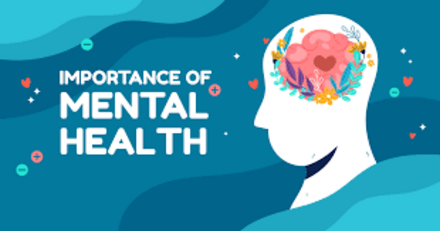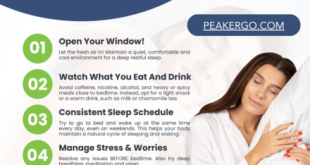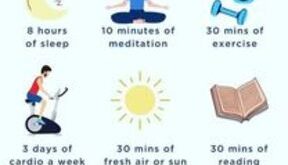The Importance of Mental Health: Strategies for Managing Anxiety and Stress
Mental health is a fundamental aspect of overall well-being, affecting how we think, feel, and act in daily life. In today’s fast-paced world, anxiety and stress are increasingly common, impacting people’s ability to function effectively. Managing mental health is crucial for maintaining balance, preventing burnout, and promoting happiness and productivity. Here, we’ll explore the importance of mental health and offer effective strategies for managing anxiety and stress.
1. Understanding Anxiety and Stress
Anxiety and stress are natural responses to challenging situations. Stress occurs when you feel overwhelmed by external pressures, while anxiety is often a reaction to prolonged stress or worry about potential threats. In small doses, these reactions can be motivating, but chronic anxiety and stress can harm mental and physical health.
The Impact of Chronic Stress and Anxiety:
- Mental Effects: Anxiety and stress can lead to constant worry, difficulty concentrating, irritability, and mood swings. Long-term effects may include anxiety disorders, depression, and burnout.
- Physical Effects: Prolonged stress affects the body, causing headaches, muscle tension, digestive issues, high blood pressure, and a weakened immune system.
2. The Importance of Mental Health
Good mental health is essential for coping with stress, forming positive relationships, and achieving personal goals. When mental health is neglected, it can affect every area of life, from work and school to social interactions and physical health.
Why Mental Health Matters:
- Emotional Resilience: Managing stress and anxiety helps build resilience, allowing you to bounce back from setbacks and challenges.
- Physical Health: Mental health is closely tied to physical health. Chronic stress can lead to heart disease, obesity, and other long-term conditions.
- Productivity and Focus: Good mental health improves focus, decision-making, and overall productivity, making it easier to achieve personal and professional goals.
- Relationships: Emotional well-being fosters better communication, empathy, and connection in relationships.
3. Strategies for Managing Anxiety and Stress
There are various practical strategies for managing anxiety and stress. Finding what works best for you is key to maintaining balance and improving mental health.
a. Practice Mindfulness and Meditation
Mindfulness is a powerful tool for reducing anxiety and stress. It involves focusing on the present moment and acknowledging your thoughts and feelings without judgment.
- Mindfulness Meditation: Set aside 10-15 minutes each day to practice mindfulness meditation. Focus on your breathing, and observe your thoughts as they come and go without getting attached to them.
- Grounding Techniques: When feeling overwhelmed, use grounding exercises like focusing on your five senses (what you can see, hear, touch, taste, and smell) to bring your attention back to the present moment.
b. Engage in Regular Physical Activity
Exercise is a proven method for reducing stress and anxiety by releasing endorphins, which improve mood and overall mental health.
- Aerobic Exercises: Activities like walking, running, swimming, or cycling help reduce stress and boost energy levels.
- Yoga and Stretching: Yoga combines physical movement with deep breathing and mindfulness, making it a great way to alleviate stress and improve flexibility.
c. Develop Healthy Sleep Habits
Quality sleep is essential for mental health. Poor sleep can increase stress levels and anxiety, making it harder to cope with challenges.
- Establish a Routine: Go to bed and wake up at the same time each day to regulate your sleep cycle.
- Create a Sleep-Friendly Environment: Keep your bedroom cool, dark, and quiet. Limit screen time before bed to improve sleep quality.
d. Manage Time and Set Boundaries
Feeling overwhelmed by responsibilities can trigger stress and anxiety. Managing your time effectively and setting clear boundaries is essential for reducing pressure.
- Prioritize Tasks: Break down large tasks into smaller, manageable steps and focus on completing one thing at a time.
- Set Boundaries: Learn to say no when necessary and set limits to prevent overcommitting yourself. Protect your personal time for rest and self-care.
e. Practice Relaxation Techniques
Relaxation techniques help calm the mind and body, reducing the physical and emotional effects of stress.
- Deep Breathing: Practice deep breathing exercises like the 4-7-8 method, where you inhale for 4 seconds, hold for 7, and exhale for 8. This helps calm your nervous system.
- Progressive Muscle Relaxation: This technique involves tensing and relaxing different muscle groups to release physical tension caused by stress.
f. Maintain Social Connections
Strong social connections are important for mental well-being. Engaging with supportive friends and family can provide emotional relief and help reduce feelings of isolation.
- Talk About Your Feelings: Sharing your worries and concerns with a trusted friend or therapist can help you feel less burdened and more supported.
- Join Support Groups: Connecting with others who understand what you’re going through can be a powerful way to reduce anxiety and stress.
g. Limit Caffeine, Alcohol, and Screen Time
Substances like caffeine and alcohol can heighten anxiety, while excessive screen time (especially on social media) can lead to overstimulation and stress.
- Caffeine and Alcohol Moderation: Limit your intake of caffeine and alcohol, especially during stressful periods, as they can worsen anxiety symptoms.
- Digital Detox: Take regular breaks from screens, especially social media, to reduce overstimulation and improve mental clarity.
4. Seeking Professional Help
If anxiety and stress become overwhelming or persist despite self-care efforts, it’s important to seek professional help. Therapists, counselors, and mental health professionals can offer tailored strategies for managing mental health challenges.
- Cognitive Behavioral Therapy (CBT): This form of therapy helps you identify and change negative thought patterns that contribute to anxiety and stress.
- Talk Therapy: Talking with a therapist provides emotional support and helps you process difficult emotions.
- Medication: In some cases, medications may be prescribed to help manage anxiety and stress. It’s important to work with a healthcare provider to determine the best course of treatment.
Conclusion
Maintaining good mental health is vital for overall well-being, and managing anxiety and stress is a key part of that process. By practicing mindfulness, engaging in regular physical activity, maintaining a healthy sleep routine, and seeking social support, you can build resilience and reduce the impact of stress in your life. If needed, professional help can provide additional strategies for coping with mental health challenges. Taking steps to prioritize your mental health will lead to greater emotional stability, improved relationships, and a more fulfilling life.
 Blooket Join Blooket Join
Blooket Join Blooket Join





